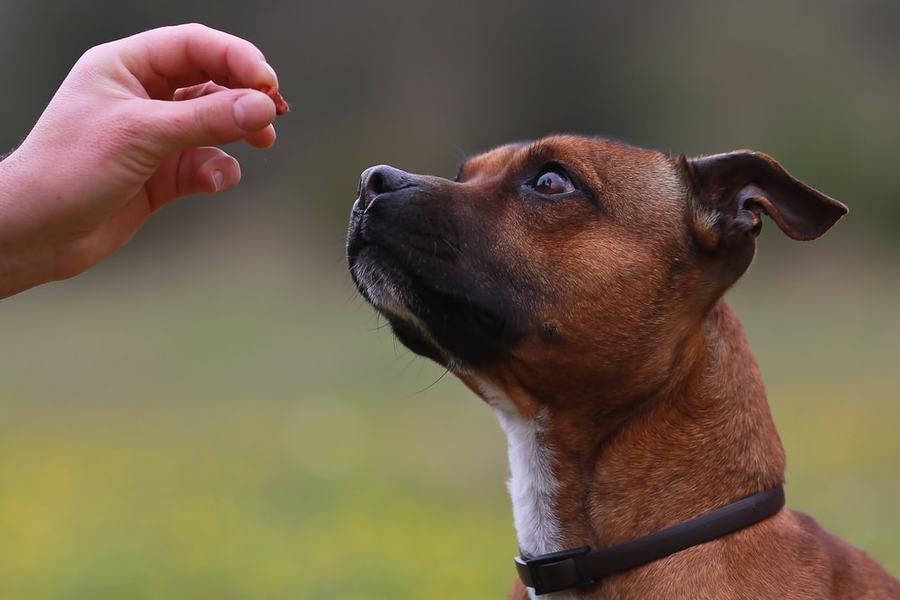“This post contains affiliate links, and I will be compensated if you make a purchase after clicking on my links.”
Treats and food rewards are one of the most effective ways to motivate your dog during training. But, is there a point in training when you stop using treats? Trainer Steve Reid explains:

“Hi Steve, I just adopted a 3 year old Pitbull Mix from my local shelter. I am starting to train him on obedience commands, using food treats. My question is: When do I stop using food rewards in my training?” – Janie C.
Hi Janice,
First of all, thank YOU for choosing to adopt and save a life! I am a huge advocate for adopting rescue dogs. I am glad you chose a Pitbull Mix, they are my favorite breed to train and own!
I commend you for starting your training as soon as you got your new dog. Early training is always the best decision. Using food rewards are a staple in modern day dog training. There are common misconceptions that food rewards are “bribes” and something you will always be dependent on (in order to have your dog listen). This is definitely not the case when used properly. Food rewards are used as motivators to build your dog’s interest in working with you and a tool to help shape new behaviors.
In the beginning of the training process, you will use a continuous reward schedule. This means you should reward your dog for every command repetition. This enables you to teach the new command and reward the dog for their engagement and completion of each command. Once your dog is able to successfully perform each command without the need for hand gestures, body language, or luring – then you can adjust your reward schedule.
Now that your dog fully understands each verbal command (i.e. no need to luring/body language assistance), then you can progress to a variable reward schedule. A variable reward schedule is when you reward your dog at randomized intervals. You can reward every 3rd, 5th, 7th, or 1st repetition. A variable reward schedule is there to build desire in your dog. You want your dog performing each command with excitement and enthusiasm, regardless if you reward that repetition or not. They are responding eagerly because they hope the next particular repetition will elicit a reward. If it does not, they will do the next rep with the same excitement, until you reward at the random interval.
Lastly, there is no reason to ever completely eliminate rewards from your training. I ALWAYS use a variable reward schedule, in which I reward with either food or a toy/game reward. This not only makes training fun for your dog, but produces the best training reliability for you.
Steven Reid is a Professional Dog Trainer who provides puppy training in Putnam NY. For more information about Steve: www.srdogtraining.com. Also become a fan on Facebook at: www.Facebook.com/SRDogTraining.


















